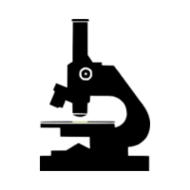
(View Complete Item Description)
This lab course supplements Introduction to Molecular and Cellular Biology. Although it does not replicate a true lab experience, it does enable further exploration of some key principles of molecular and cellular biology. In each unit, the student will work through tutorials related to important scientific concepts, and then will be asked to think creatively about how those concepts can be put to practical or experimental use. This lab course also contains activities devoted to learning important techniques in scientific study such as microscope use, DNA extraction, Polymerase Chain Reaction, and examination of DNA microarrays. Upon successful completion of this lab supplement, students will be able to: Identify the important components of scientific experiments and create their own experiments; Identify the molecular differences between proteins, fats, and carbohydrates, and explain the molecular behavior of water; Describe the process of photosynthesis; Describe the process of cellular respiration; Identify the differences between DNA and RNA; Describe the entire transcription/translation process, from gene to protein; Explain how recombinant genomes are formed; Use critical thinking to find ways that any of the above natural processes might be altered or manipulated; Explain how to use a compound light microscope for data collection; Explain how to conduct and use various experimental techniques, including DNA extraction, PCR, and DNA microarrays. (Biology 101 Laboratory)
Material Type:
Full Course



